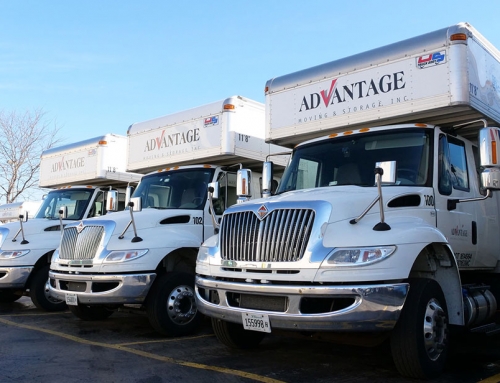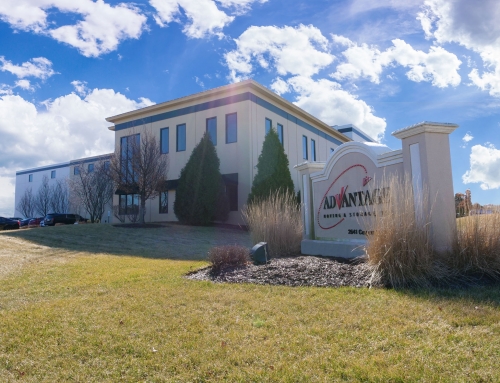No matter the type, negotiations can be stressful. Signing a commercial lease presents its own challenges, and negotiating that lease can prove to be downright challenging. In this post, we’ll look at some of the top tips to help ensure your business in a spot to succeed.

1. Evaluate the Length
Once you’ve located a commercial rental location, completed your commercial rental application and successfully applied for a real estate lease, you will receive real estate forms for your lease. One of the first issues you need to work out is the length of the lease. A term of one to two years is usually best for small businesses, with an option to renew included. This doesn’t tie you in for too long but gives you the option to stay if it is a good fit. If you feel that you could easily find a comparable location, a shorter lease is better for you in case rents in your area go down or it turns out to be an unfavorable location. However if your business is going to be very location-dependent (such as a restaurant), you will want security, so a longer term makes sense.
2. Understand Your Options
The costs covered in the lease can vary greatly, based on the type of lease.
- In a gross rent lease, you pay a single amount to the landlord that covers base rent and all incidentals. Those typically include utilities, property tax, insurance, maintenance, repairs and common area expenses, such as snow removal, janitorial services, landscaping, grass cutting and property management. Another option is a modified gross lease, in which you and the landlord share some combination of incidental costs
- It’s also possible to sign various kinds of net leases, under which you pay some incidentals directly. This usually results in a lower rent. The main differences between net leases are as follows.
- In a net lease, you usually pay for the base rent plus one of the following: property taxes (most common), insurance or utilities. Your landlord pays for all other expenses
- In a double net lease, you pay base rent plus property taxes and insurance
- In a triple net lease, you usually pay base rent, plus property taxes, building insurance and utilities, as well as other operating and maintenance costs.
Note: While the above definitions are standard, landlords sometimes add maintenance or common area expenses to your costs as part of a single or double net lease, so always double check what you must pay for.
- In a percentage rent lease, you pay a base rent plus a percentage of your gross sales over a certain minimum. These are usually used in malls and other multi-tenant retail locations.

3. Search for Hidden Costs
Many commercial leases make the tenant responsible for costs such as maintenance or upkeep of common areas. Get the details on these costs up front and negotiate this section to be as favorable as possible. Find out if your business will be responsible for specific systems maintenance and learn the current conditions of those systems so you can estimate costs. Negotiate dollar amount caps to these costs or negotiate for a slightly higher rent in exchange for the landlord taking on all costs. Determine whether there are separate utility meters or if utilities are apportioned among tenants by square footage.
4. Understand Your Finances
Carefully review the incidentals you are being asked to pay for to make sure the total cost fits your budget. Any future increases in base rent and incidentals should also be clearly specified. Don’t be shy about asking for changes.
5. Look for Favorable Clauses
Ask for modifications to the lease that will benefit you. For example, a clause allowing you to sublease the property can be important should your business suddenly relocate or close. You may want to ask for a clause that restricts the landlord from renting out any other unit on the premises to a business similar to yours. A co-tenancy clause will allow you to break the lease if a large anchor tenant (which drives business to you) leaves. It is also possible to negotiate for the landlord to be responsible for making improvements to the property before you move in. Make sure you are permitted to put up signage for your business.
6. Review Termination Conditions
Check the circumstances under which either party may terminate the lease. For example, can you be kicked out simply for missing a rent payment? What happens if the building is sold? If your sales decline or you want to expand to a bigger space, how can you break the lease? Some leases require you to pay all or part of the remainder of the rent. You can negotiate for better terms. Also, look at whether you can sublease the space. If sales decline, subleasing the whole space could allow you to move elsewhere without paying a hefty lease termination penalty. Alternatively, you could sublease part of the space to help cover the rent.
7. Look at Renewal Conditions
The duration of your commercial property lease can range from month-to-month to several years. Be sure to understand when and how the lease will be renewed. Also ensure that you have the option to renew the lease at the end of the term, if that is important to you. You may be able to negotiate other options, such as the right of first refusal to lease an adjoining unit for expansion. Alternatively—if the rental market has declined, for example—the landlord might give you a better deal when you renew.
8. Research Comparable Rents
The amount of rent you will pay is an important consideration in a commercial lease agreement. Do your homework and know what the going costs are in your area so you can negotiate a fair price. Part of negotiating renewal options includes specifying rent increases so you won’t have any surprises ahead. Your landlord will likely want to increase the rent for each additional year. Try to work out a cap on these increases so it remains affordable for you to stay in the commercial real estate location. You can also negotiate the amount of your security deposit and the conditions for its return.
9. Don’t Rush to Sign
Landlords typically submit their own lease to prospective tenants. It’s vital to carefully review this document and the proposed responsibilities of the tenant and landlord.
“I’ve seen leases where the tenant didn’t do their homework and ended up being responsible for all sorts of unexpected costs or couldn’t break the lease without paying the remaining rent in full,” BDC Major Accounts Manager Brett Prikker told the company’s website. The proposed lease usually isn’t fixed in stone. “There’s typically negotiating room.”
10. Get a Lawyer Involved
It’s critical to involve a commercial lawyer in your lease negotiations. “Always, always, always get a lawyer’s opinion,” said Prikker. “It’s best to get a good commercial lawyer who understands leases. Some businesses use a general or family lawyer, and then end up signing a lease with unexpected costs. Leases are complex, and I’ve seen a lot of mistakes made.”
Once you’ve negotiated your commercial lease and are ready to move your business, contact the professionally trained staff at Advantage here for help!






